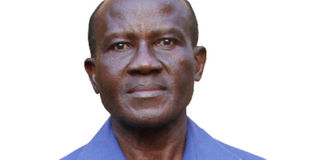Was Bobi Wine reckless, or did Beti Kamya go ‘village’ politics?

Politicians calculate, and must take responsibility for the effects of their actions.
Thoughtful Ugandans wonder why we have so many MPs, and why they are paid so much for delivering such little value as lawmakers.
Other Ugandans often see the MP as an agent who directly transfers resources from the State to the people in his constituency.
The MP then becomes first a benefactor. Making laws and checking the Executive become secondary.
This view of an MP is more widespread in the rural areas. If the MP is ‘close’ to his people, he can earn or even plunder as much as he does, as long as he brings some of it down to his constituency.
But we must ask a fundamental question:
Should this ‘village’ concept of an MP be preserved; or should the citizen be persuaded to increasingly demand that his MP perform his intended constitutional role?
President Museveni does not want Parliament to have the power to (fully) perform that role. And he knows that you can reduce the power of an institution by eroding its integrity.
The pattern of dubious sums of money often given at the behest of State House to MPs in the guise of ‘facilitation’ comes from that mindset. A mercenary cannot stand upright on the floor of Parliament as a true people’s representative.
Furthermore, some members of the ruling circle have been so corrupt; they want a political environment where MPs are pilloried as parasites; where judges are corrupt; where the business class is corrupt; where the common people want to be bribed for their votes.
Why? The ruling circle can then say that we are all sinners.
But the question reverberates: Should MPs remain petty village benefactors or be restored to their proper role?
The Kyadondo East MP, Robert Kyagulanyi (or Bobi Wine), is not opposed to Covid-19 generosity. Indeed, before the infamous Sh10 billion entered the frame, Bobi Wine had arranged to give some food to the needy in his constituency. When President Museveni criminalised such individual efforts, Bobi Wine obliged and sent the food to Museveni’s taskforce.
However, charity using personal/private resources is different from cunningly extracting money from public coffers on an ill-defined basis. The MPs cannot go further than promise to spend the money (Sh20 million per MP) on relief.
Bobi Wine has refused to peddle this line, which entrenches the ‘village’ legislator mentality. Moreover, to the elite, the money is just another political ‘bribe’. He has calculated that, both ways, accepting the money undermines the integrity of Parliament.
Several technicalities have been presented, suggesting that the MPs can access some very special cash. It is vampire chicanery. There is no silver mine under Parliament. All ‘their’ money ultimately comes from today’s or tomorrow’s taxpayers.
The State took the responsibility of buying and distributing relief food through the Covid-19 taskforce. Instead of spreading Shs10b around on the wild gamble that the MPs would spend it on the right people, the State should be given space to prove its will and its competence.
An otherwise astute political nomad, the former Opposition politician (and now a government minister), Beti Kamya, cannot yet understand Bobi Wine’s statement of principle. In an April 25 conversation with Dunstan Busulwa on Top Radio, Ms Kamya characterised Bobi Wine’s reasoning about the money as kusamwassamwa; an impolite word that means talking/writing irresponsibly or recklessly.
It is a difficult debate. Ms Kamya, an unelected minister, is targeting a parliamentary seat to represent a Kampala suburb, come 2021. In the circumstances, it is understandable if she reasons like a villager seeking a parliamentary seat.
Bobi Wine is an elected MP seeking the highest office in the land. It is equally understandable if he reasons like a would-be statesman who wants to see reform in our public affairs.
Mr Tacca is a novelist, socio-political commentator.
[email protected]




